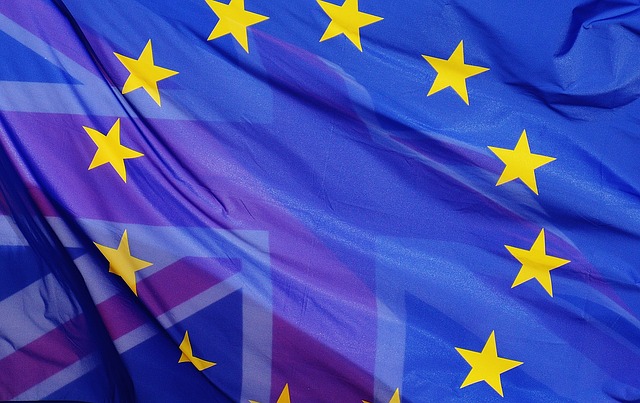The question of whether Britain should remain in or leave the European Union has become one of identity. Does Britain see itself as part of this project or is it different? So it makes sense for anyone still undecided on which way to vote to ask themselves a similar question.
In our research, we’ve found that how people see their own identity connects to how they understand the world to be organised – including how they see the European Union.
In less tense times, between 2008 and 2013, we asked 100 people across seven European cities, including Edinburgh, Glasgow and London, whether they considered themselves to be citizens of the EU. We asked a range of people – an equal number of men and women and an equal number of migrants and non-migrants. Our migrants came from both within and outside the EU. We talked to people about European ideals and asked them about migration, whether they travelled or were likely to move.
People who identified as British or English above anything else, saw the EU as democratically deficient and out of touch. They emphasised the distinctiveness of countries and saw the world as a “world of nations”.
Scotland continues to debate whether the UK or Europe should be its union of choice. And sure enough, we found a greater variance in the way people saw themselves in the two Scottish cities than in the others we visited. Some also saw the world as a “world of nations”. To be Scottish or British was an exclusive identity and the EU was distant and out of touch.
Others comfortably combined their Scottish identity with a European identity – here Scotland was understood as a country within the European Union. Both these views of the world have a protectionist feel. The first is the classic sovereignty position we have heard so much about. The second frames the world as bounded regions.
Those who had this more regional outlook regarded mobility as important for the region to be an effective player in the world. Such people saw the collective benefits of easy short-haul travel. European holidays, working with European counterparts, visiting a relative who lives in France, travelling to Europe for work or settling for a time in the rest of Europe, all reinforced a sense of the value of European regional cooperation.
What’s your heritage?
Things get more complicated still for ethnic minority citizens who attached salience to their heritage. Irrespective of how much they moved around in Europe, these citizens often didn’t identify as “European” and felt they were rarely perceived by others as European. These interviewees were more likely to see themselves as part of “one world”, rather than one defined by nation or regions. They focused on solidarity and common humanity. The EU risked, for them, becoming a cold and overblown “fortress” project.
This, interestingly, hasn’t always been the case. An earlier study in 2007 found South Asian respondents, irrespective of whether they were Asian or British Asian, comfortably combined Asian, British and European identities.
For people who find solidarity and security in a distinct national identity, the question to consider is what happens when this identity combines with other identities -– are these qualities enhanced or compromised?
For some people, across all the cities we spoke to, talking about identity and Europe is a conversation about rights. Interviewees that spoke about environmental rights, gender and sexuality rights, also spoke about solidarity and one world. However this global sensibility was avowedly pro-European.
These people wanted to cultivate a democratic, peaceful and tolerant EU. They saw its potential as a forum for socioeconomic cooperation. For them, the EU acts as a progressive creative force which has the potential to challenge more conservative and potentially repressive regions to the east and west.
Are you a city-zen?
Around a quarter of our interviewees didn’t have strong views on the EU at the time of our meeting. Some of this group were pragmatic and accepted what institutional arrangements were in place. Others identified first and foremost with their home city. These “city-zens” (as one participant put it) arrange the world into a configuration of globally diverse cities where migration – and its tensions and opportunities – are a given.
The EU aroused little interest in this group. Individualistically orientated, city-zens often needn’t move to reach diverse opportunities, so the EU didn’t necessarily appear to offer new opportunities. Now that a referendum is upon us, city-zen voters are likely to be thinking carefully about what role the EU has played in the balance of arrangements which make up the individual freedoms and diversity within their cities.
Identity was bound to become important in this referendum. Interestingly though, we found there seems to be quite a few to choose from. Different identities connect to different worldviews.
Deciding on your own identity, then, could help you decide how you are going to answer the question that has been put to us – a question about the UK’s position in an interdependent world.
![]()
Kesi Mahendran, Lecturer in Social Psychology, Enactments Programme Director, Centre for Citizenship, Identities and Governance, The Open University
This article was originally published on The Conversation. Read the original article.



